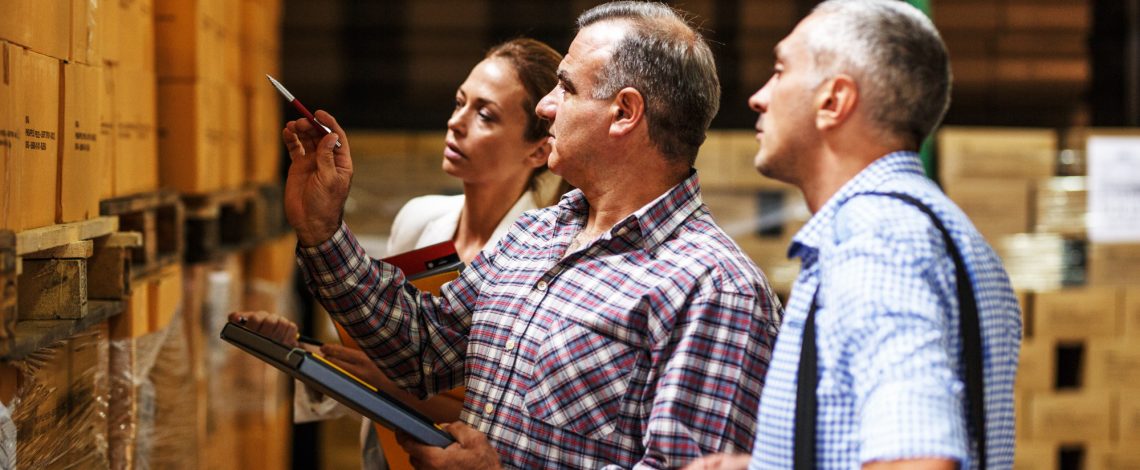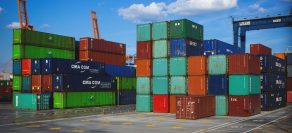Business owners looking to expand their business may look to other countries to find additional customers. However, the customs clearance process may ultimately deter them from growing their international business.
Customs clearance occurs at every port and country around the world. Custom clearance provides each country the security and peace of mind that the items being shipped are safe and acceptable depending on their laws. Every country has different laws, which means that the customs clearance process can be slightly different for each one.
As a business owner, keeping up with these various laws may seem overwhelming. Especially, if you are a small business with a limited number of employees.
We all know and understand that running a business comes with an element of risk. Starting a business, for example, is a risk. It’s understandable that expanding your business may stir up some fear, but the skills you’ve already learned as a business owner can help you to succeed.
To learn more about customs clearance, you’ll need to educate yourself and conduct thorough research. You’ll also need to prepare for any issues so they can get resolved. Read on to learn 7 tips for getting your cargo through customs clearance.
7 Tips for Preparing for Customs Clearance
Our modern society is abundant with international connections in a global economy. We are now more connected than ever. Our technology is also continuing to advance which helps us to maintain a steady stream of business and communication with customers.
But, one fact of doing business internationally still remains. You’ll need to know about shipping laws and customs to successfully ship your products. Without this knowledge, your business could face additional expenses that could hinder your bottom line.
However, customs clearance shouldn’t deter you from growing your business internationally. With the right tools, education, and guidance you’ll be able to successfully get your cargo through customs clearance without any delay or concerns.
Explore the following tips to employ when getting your cargo through customs clearance.
1. Load Your Shipping Container Properly
To start, you need to know how to load your shipping containers properly. Unproperly loaded shipping containers may cause customs workers to flag your shipment. This could cause significant delays which could also increase your expenses.
This is because you’ll be paying money to have your shipping container stored in a warehouse. The longer the shipping container remains at the warehouse, the more you’re expected to pay. To avoid these delays and costs, you’ll need to follow shipping loading guidelines based on the products you’re shipping.
Space, weight distribution, and the type of cargo you’re shipping will all play an important role in loading the shipping container. To start, you cannot exceed the cargo weight limit or payload. The payload is calculated by rating minus tare of the shipping container and cargo.
If your cargo isn’t properly loaded, you can also expect extensive searches and examinations.
2. Research Port and Country Laws
Wherever your cargo is going, you need to be aware of the country’s laws. The laws and procedures can also vary depending on the port. Knowing these laws will help you to avoid any issues and additional fees.
3. Properly Fill Out Paperwork
When shipping items internationally, you can expect a great deal of paperwork. This paperwork needs to be filled out accurately to avoid any delays and problems.
If you have specialized cargo, then you’ll need to fill out the corresponding paperwork as well as nine key forms of documentation.
These nine pieces of paperwork that all international shipments require are a letter of credit, certificate of origin, and a commercial invoice. You also need a shipping quote, material safety data sheet, and a shipper’s letter of instruction. Lastly, you’ll need proof of booking confirmation, a packing list, and a bill of lading or air waybill.
All the information on these forms must be accurate. Your business’s name and contact information must be precise. You’ll also need accurate business details for your buyer.
4. Be Available for Inquiries
When shipping cargo, you need to be prepared for inquiries. After all, there is a lot of paperwork that needs to be completed so mistakes may occur. Make sure you are available to answer these inquiries to speed up the process and resolve any issues in a timely manner.
5. Charge Buyers Duties and Fees Before Shipping
Many sellers make the mistake of shipping items before the buyer pays duties and fees. For customs clearance, these expenses will need to be paid before the shipment enters the country. This is why it’s recommended to charge these duties and fees in advance and to provide a receipt of payment.
If you don’t require the buyer to pay these fees in advance, then the buyer will be contacted by customs. This could surprise the buyer and also delay the shipment.
6. Be Organized
When shipping internationally, it’s important to stay organized. Keep track of all invoices, receipts, and other documentation to make the process run more smoothly. Make copies of all the paperwork in case your shipment gets flagged by customs.
This will allow you to answer any and all questions by referencing your shipping paperwork.
7. Hire a Freight Forwarder
A freight forwarder is a company that can take care of the shipping process for you. They can also help you to gain customs clearance more smoothly if the company has enough experience.
A freight forwarder will help you to also negotiate prices with transportation services. They can also determine the fastest, most dependable, and economical shipping route.
They also act as a liaison between your company and transportation services.
Customs Clearance: Gaining Support
Aside from gaining the support of a freight forwarder, you may also want to enlist your employees to help. It may be extremely helpful to assign the duties involving customs clearance to one or more team members.
Hiring someone to monitor and complete the customs clearance process may also be useful. Doing so can eliminate or reduce any mistakes.
It can also help to make the process go more smoothly. By having a set point of contact that isn’t you, you’ll also be able to free up your schedule and duties when running your business. This can help you to focus on completing everyday tasks without needing to manage customs clearance.




